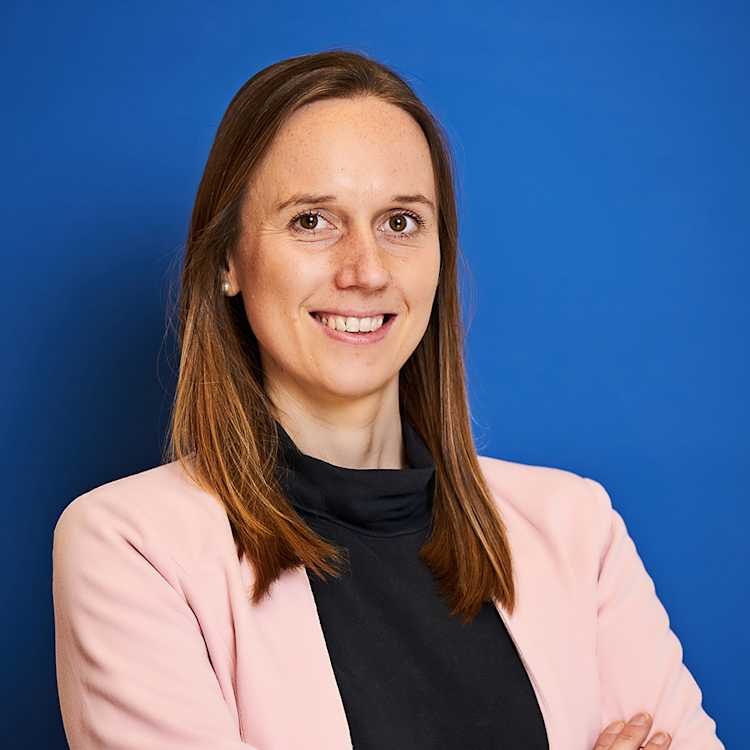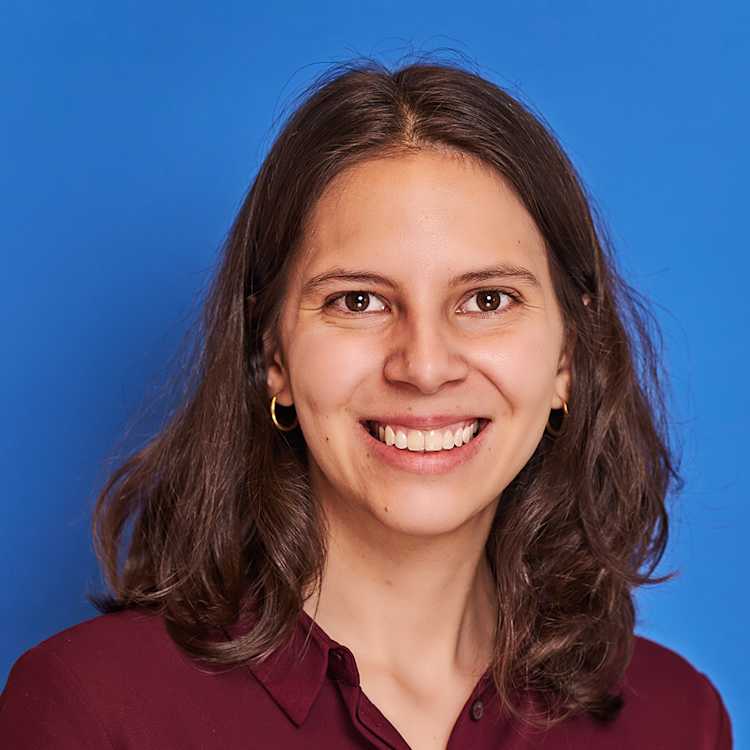Spotlight on... | 22/09/2021
"Spotlight on…" Katharina, Johanna and Rosanna
We welcome three new Doctoral Researchers. Learn more about Katharina, Johanna and Rosanna and their research projects in the interviews.
Katharina Fietz
Katharina completed her master studies in Economics at the Nova School of Business and Economics and worked as a Research Analyst in the Social Protection and Jobs Unit at the World Bank Group. She recently joined the GIGA working in the project “Context Matters – Country-Specific Politico-Economic Analyses, Conflict and Crisis Potentials, as Well as Global and Regional Trends” and now also starts with her dissertation titled “Social protection systems and (in)formal labour markets in developing countries”. Get to know Katharina and her dissertation project in the short interview below:
What made you choose to do a PhD?
I choose to do a PhD since I want to learn more about the topic of informality and social protection system in an analytical and structured way. I would like to increase my knowledge in quantitative methods and data analytics in an academic environment.
What is your main motivation to address the topic of your PhD?
Low- and middle-income countries are often struggling with a high level of informality and a resulting high share of people not protected by any social protection system. The currently ongoing COVID-19 pandemic has demonstrated how dangerous a missing social protection system can be to societies. Public policies often try to address this challenge and to incentive people to enter the formal labour market. In my PhD I want to analyse the incentive structure of selected public policy measures to decrease informality and guarantee social protection to people. I believe this is especially relevant in a changing nature of work, where we see an increasing share of people working under non-standard working arrangements.
What are you looking most forward to during your PhD studies?
I hope that I will get the chance to discuss my work and the work of others with fellow students and researchers in order to reflect the work I do.
If you could choose one person to discuss your research topic with, who would that be (e.g. a well-known researcher, politician, other public figure)?
Santiago Levy Algazi
And now to wrap this interview up: Big conferences or small workshops?
Even though I perceive big conferences as very informative and important, I like to discuss questions and approaches in small workshops, where I can brainstorm with others over my and their ideas.
Paperback book or eBook?
I am reading a lot on my computer during the day, therefore I like the feeling of holding a book in my hand in the evening and prefer paperback books over eBooks.
Johanna Pieper
Johanna obtained her M.A. in European Studies (Euroculture) at the University of Göttingen and Rijksuniversiteit Groningen. In January 2021, she joined the GIGA as an intern and has recently started with her dissertation project titled “The effectiveness of labor provisions in EU Free Trade Agreements – Adoption, Adaptation, Resistance, or Rejection of EU norms in the Andean Community?”. Get to know Johanna and her dissertation project in the short interview below:
What made you choose to do a PhD?
On the one hand, I have always enjoyed writing term papers and when I started working at the GIGA as an intern, I realized that I want to continue working in an academic setting. On the other hand, growing up in Peru and Germany, I have developed a deep interest in finding out more about the sustainable development of Latin American countries through international cooperation. Therefore, my dissertation allows me to explore this by focusing on the implementation of the labor standards in EU Free Trade Agreements in the Andean Countries.
What are you looking most forward to during your PhD studies?
I am definitely looking forward to the collection of data. I am planning on doing field research for the expert interviews I want to conduct, so hopefully I will travel to Ecuador, Colombia and Peru. I am also looking forward to discussing my project with other researchers who are passionate about the research topic I am investigating and to learn from them by having constructive conversations.
What difficulties do you expect to encounter during your project?
I think that the biggest challenge when analyzing Latin American countries (or developing countries in general) is the access to the data necessary for the project. Whether you have to look for interviewees, articles, or statistics, you can never be 100% sure that you have all the necessary data. Since my empirical material will consist mainly of expert interviews and local newspaper articles / reports from Latin American countries, it is a challenge to gather relevant domestic stakeholders (such as civil society or policy-makers) or to have direct access to local newspapers, especially from rural areas. Nevertheless, doing field research in these countries will definitely facilitate collecting the data.
And now to wrap this interview up: Reading or writing?
Writing. I do enjoy reading; however, when working on research projects, I usually can’t wait to write down all the interesting information I found in other papers or in my data and to connect all the dots.
Big conference or small workshop?
Small workshop. Recently, I participated in a Summer School which resembled a small workshop. What I enjoyed most about it was to work together in a small but very international group with people from diverse academic backgrounds. Personally, it was a great environment to learn how to best present my research topic, and to receive / provide critical feedback. Rosanna Fanni
Rosanna holds a Erasmus Mundus Master Degree in Digital Communication Leadership and has previously worked as a Associate Researcher at the Centre for European Policy Studies (Brussels) and as a Visiting Researcher at The Brookings Institution (Washington, DC). In August 2021 she joined the GIGA as a Doctoral Researcher in the project “Digital Transformation Lab (DigiTraL)”. Get to know Rosanna and her dissertation project in the short interview below:
What is your main motivation to address the topic of your PhD?
During my Fulbright project at Brookings, I compared artificial intelligence policies as part of my affiliation with the multi-stakeholder Forum for Cooperation on AI (FCAI). I was increasingly disappointed by the complete absence of stakeholders from the Global Souths in the Forum – an initiative promising to strengthen “international” cooperation in AI. Besides this and previous research, reading narrations about how datafication affected communities in the Global Souths during Covid-19 struck me as something I wanted to understand in detail.
If you could choose one person to discuss your research topic with, who would that be (e.g. a well-known researcher, politician, other public figure)?
I would be quite curious to present my ideas to Hannah Arendt because of two reasons. First, based on her reflections on human plurality (ie. the that we always live with other people) and politics, I would like to ask if/under which conditions she would support digital surveillance infrastructures. Second, I would be curious to hear Arendt’s reflections on citizenship and technology beyond 2021.
What difficulties do you expect to encounter during your project?
One of the main motivations to embark on this PhD at GIGA is to deepen discourses between two insufficiently linked fields, namely technology (STS) and governance (political science/ IR). I consider this as not only my main motivation but likewise one major challenge in both my PhD as well as part of our work in DigiTraL: to connect and establish fruitful exchange between technology experts, policy professionals and scientists.
And now to wrap this interview up: Qualitative or quantitative methods?
My Italian roots generally seek to understand motivations, emotions and cognitive biases of others (including myself) through a qualitative paradigm at the outset, while my German roots then add quantitative tools to make sense of the complexity step by step.
Paperback books or eBooks?
Definitely paperback: I always annotate and scribble in my books (only with pencils though).


